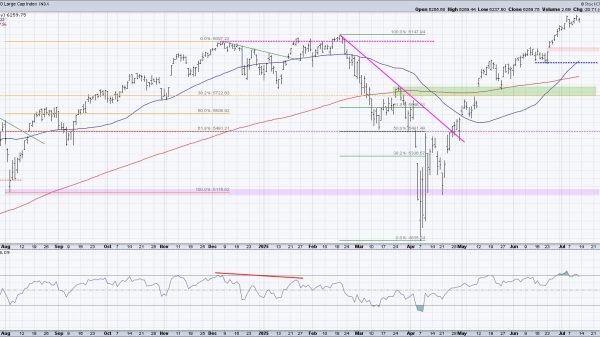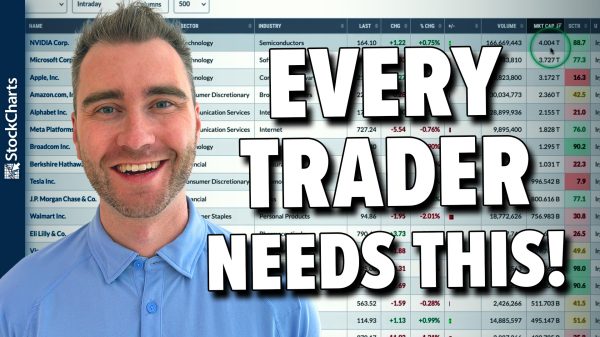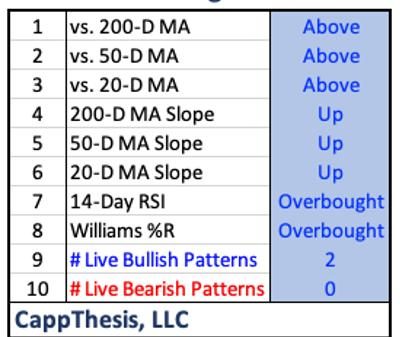Navigating Recessions: A Comprehensive View
In economics, a recession represents a significant, widespread, and prolonged downturn in economic activity. Traditionally, a common rule of thumb is that two consecutive quarters of negative growth in gross domestic product (GDP) signal a recession. However, while straightforward, this measure does not capture the full picture. The National Bureau of Economic Research (NBER) employs a more nuanced approach, considering a variety of indicators such as nonfarm payrolls, industrial production, and retail sales to determine a recession’s onset and end. This complexity underscores the multifaceted nature of economic contractions and the challenge of identifying them precisely and timely.
The Historical Context and Modern Understanding of Recessions
Since the Industrial Revolution, steady economic growth has been the norm, with recessions emerging as notable, albeit common, exceptions. Between 1960 and 2007, the International Monetary Fund (IMF) recorded 122 recessions across 21 advanced economies, indicating that these economies were in recession approximately 10% of the time. However, in recent decades, recessions have become less frequent and shorter in duration, a testament to advances in economic management and globalization. Yet, the impacts of recessions, when they occur, can be profound and far-reaching.
The Domino Effect of Economic Contractions
The onset of a recession often triggers a cascade of economic declines. Decreasing consumer demand leads businesses to reduce their workforce, limiting consumer spending power and further dampening demand. This cycle can become self-perpetuating, deepening the economic downturn. Additionally, recessions often coincide with bear markets, eroding personal wealth and reducing consumer expenditure further. These dynamics illustrate how interconnected and fragile the economic ecosystem can be.
Identifying Recessions: A Complex Endeavor
One of the challenges in managing economic downturns is the difficulty in recognizing them in real-time. Recessions are usually declared well after they have begun, with indicators such as equities markets and corporate earnings often providing early warning signs, albeit not definitively. Conversely, metrics like consumer spending and unemployment may lag, painting a picture of economic health that belies underlying troubles. This discrepancy can lead to varied experiences and perceptions among investors, economists, and the general workforce regarding the timing and severity of a recession.
Theories and Causes of Recessions
Economists have developed numerous theories to explain the causes and mechanics of recessions. These can be broadly categorized into economic, financial, and psychological factors or, often, a blend of these. For instance, significant shifts in industry structures or sudden increases in commodity prices, such as oil, can precipitate economic downturns. Financial theories highlight the role of credit cycles and monetary policy, suggesting that recessions can stem from the contraction of credit and money supply. The 2020 COVID-19 pandemic provides a recent example of an external shock that led to a swift and severe economic contraction, illustrating how unforeseen events can trigger recessions.
The Debate Over Recession Definitions
The question of what precisely constitutes a recession continues to evoke debate among economists and analysts. For example, the 2022 discussions surrounding the U.S. economy highlighted the complexities in defining a recession. While some indicators suggested a recession, others pointed to economic resilience. Analysts at Raymond James argued that despite two-quarters of negative GDP growth, other positive indicators, such as continued employment growth and rising personal income (excluding COVID-19 relief payments), suggested the U.S. economy was not in a recession. This debate underscores the importance of a holistic approach to understanding economic health beyond simple GDP measures.
The Perils of Co-Signing a Loan
Co-signing a loan is a significant commitment, one that should not be taken lightly, even during prosperous times. The principle behind co-signing is simple: you are pledging to take on the responsibility for someone else’s debt if they fail to meet their obligations. While this might seem manageable in a thriving economy, the dynamics shift dramatically in a recession.
Why the Stakes Are Higher
During economic downturns, the risk of job loss and decreased business income rises, affecting not just the primary borrower but also you, the co-signer. This elevated risk means that if the borrower struggles to make payments due to financial hardships, you will be on the hook, potentially straining your finances or even jeopardizing your credit score.
Adjustable-Rate Mortgages: A Cautionary Tale
When buying a home, you’re faced with choosing between an adjustable-rate mortgage (ARM) and a fixed-rate mortgage. Each has its benefits, but in the context of a recession, the scales tip in favour of fixed rates.
Interest Rates and Their Implications
It’s typical for interest rates to fall at the onset of a recession, only to climb as the economy begins to recover. If you opt for an ARM during a downturn, you might find yourself facing higher interest rates—and consequently, higher monthly payments—once the economy picks up again. A fixed-rate mortgage, by contrast, offers the stability of consistent payments, making it a potentially wiser choice in the long run.
The Dangers of Assuming New Debt
In good economic times, taking on new debt, such as a car loan or a student loan, might not seem daunting. The assumption is often that future earnings will comfortably cover the repayments alongside other financial obligations. However, this equation changes during a recession.
Income Uncertainty and Debt Repayments
With the increased likelihood of job loss or reduced business income, the capacity to manage debt repayments can become compromised. Should you find yourself earning less, the burden of debt can become overwhelming, eating into your ability to save for future goals, including retirement.
Employment: A Precarious Asset
The notion that employment is secure is a luxury not afforded during economic downturns. Companies, faced with the need to cut costs, often resort to layoffs, making no job truly safe.
Lessons from Recent History
The tech industry’s massive layoffs in 2022 serve as a stark reminder of how quickly employment prospects can change. Both Meta Platforms Inc. and Amazon.com Inc. executed their largest-ever workforce reductions, underscoring the vulnerability of jobs in a recession. This reality makes it imperative to think twice before leaving a job during economic uncertainty, as finding a new position may not be as straightforward as expected.
The Risk of Business Investments
For entrepreneurs, the temptation to invest in growth or expansion can be strong, driven by the desire to seize new opportunities. However, the onset of a recession is a time for caution rather than risk-taking.
Timing and Strategy
While it’s essential to plan for the future, making significant investments during the early stages of a recession could expose your business to undue risk. Patience is key; waiting until signs of a sustainable recovery emerge can position your business to make more informed and ultimately successful investment decisions.
When we talk about recessions, the conversation often gets bogged down in economic indicators, stock market figures, and a flurry of financial jargon. Yet, behind the cold data and complex analyses lie the real stories of individuals and families whose lives are profoundly affected. Recessions are more than just a technical slowdown in economic activity; they represent periods of significant hardship for countless people. Understanding the impact of recessions requires us to look beyond the numbers and see the human experiences intertwined with these economic downturns.
The Ripple Effects of Recession
Think of the economy as a vast, interconnected ecosystem. Every decision made by individuals, businesses, and financial institutions sends out ripples that affect the entire system. As fear of recession grips investors, markets become volatile, which in turn constrains access to capital for companies. This, coupled with reduced consumer spending, forces businesses to cut costs wherever possible. These austerity measures often result in job losses, creating a vicious cycle of unemployment and reduced consumer spending that can deepen the recession.
The Labor Market in Turmoil
The labour market suffers the most during recessions. Mark Hamrick, a senior economic analyst at Bankrate, has made observations about recessions. He notes that each recession is unique. Yet, they all pose risks and damage to Americans’ personal finances. In response to a recession, businesses enter survival mode. They halt expansion plans, cut costs, and may even shut down. This leads to fewer job opportunities and less job security for workers. Such an environment creates fear and stress among employees. They worry about their income and their worth to the company. As a result, the workplace dynamic shifts. Fewer employees are willing to risk changing jobs. Job-hopping used to be seen as a sign of economic confidence.
Diminished Worker Power and Financial Strain
In a recession, the balance of power shifts away from workers. With fewer jobs available, companies are less pressured to replace employees who leave, and the competition for remaining positions increases. This situation often leads to smaller raises and less flexibility in the workplace, further exacerbating the financial strain on workers. Moreover, the turbulence of the stock market during recessions can severely affect retirement accounts, with the average bear market leading to a significant decline in the value of investments.
Long-Term Impacts on New Entrants
Recessions are particularly hard on new job market entrants. Graduates seeking their first job during a downturn often have to accept lower wages than they would in a booming economy, a setback that can take years to overcome. The Department of Labor suggests that these workers might spend a decade or more trying to catch up to their peers who were lucky enough to start their careers in more favourable economic times.
A Multifaceted Approach to Economic Downturns
Understanding recessions requires a comprehensive view of the economy. We must recognize the limitations of single measures like GDP growth. The work of institutions like the NBER is crucial. They assess a range of economic indicators to provide a more accurate picture of economic health. Additionally, theories and causes of recessions highlight the complexity of economic dynamics. They remind us of the myriad factors that can lead to downturns. As we navigate the challenges of economic management, the interconnected world presents new obstacles. The lessons from past and present recessions will be invaluable. They help foster resilience and stability amid uncertainty.
The post Navigating Recessions: A Comprehensive View appeared first on FinanceBrokerage.
























